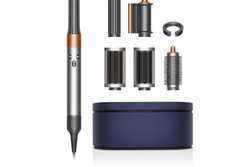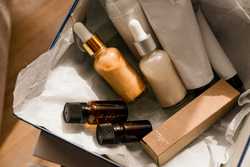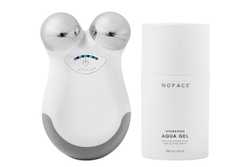How to Select Anti-Aging Skin Care Products, According to Dermatologists
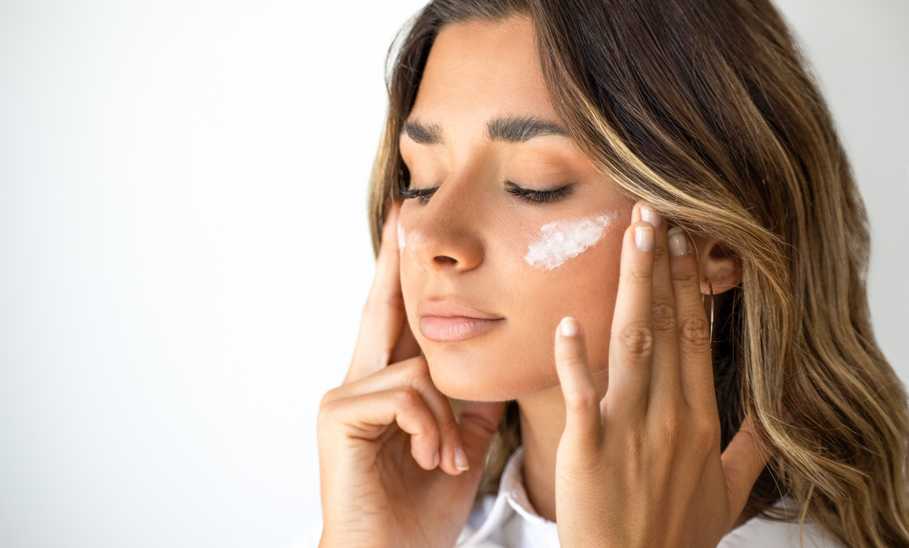
Our evaluations and opinions are not influenced by our advertising relationships, but we may earn a commission from our partners’ links. This content is created by TIME Stamped, under TIME’s direction and produced in accordance with TIME’s editorial guidelines and overseen by TIME’s editorial staff. Learn more about it.
Shopping for anti-aging skincare products can easily get overwhelming with thousands of products on the market. The only way to narrow the choices is to understand what, exactly, the best ingredients are ones that can actually make a difference in the appearance of wrinkles, skin texture, and other concerns that come with the natural process of aging.
Since pretty much every product on the market comes with its own claim about anti-aging, some expert help is needed. That’s why I turned to skincare specialists and dermatologists about what ingredients to look for and what products they recommend for treating fine lines and wrinkles, spots on the skin, and circles under the eyes. It turns out, you may not need as many products as you think if you pick ones with the right ingredients that work well for your skin type.
I spoke to three skincare experts, including two who’ve researched and developed their products, to learn more about anti-aging ingredients, how they work, and how to select the right items for your face. While the focus is on products specifically for the face, the same advice can apply to skincare products that treat your neck and rest of your body.
Most anti-aging products target skin conditions, such as dark circles under the eyes, dark spots or discoloration, redness, and fine lines and wrinkles. The ingredients in anti-aging lotions and potions help cell turnover, skin brightening, and tightening, plus reduce smooth lines, reduce hyperpigmentation, and hydrate your skin.
When you’re looking for products that target anti-aging, retinol and hyaluronic acid are two important ones. “Retinol is a form of vitamin A that stimulates collagen production and promotes cell turnover, smoothing fine lines and wrinkles and reducing hyperpigmentation,” says New York City-based dermatologist and Mohs surgeon Dr. Dendy Engelman. “Hyaluronic acid is a naturally occurring glycosaminoglycan that helps keep your skin looking plump and hydrated. It is used in serums, creams, and lotions to reduce wrinkles and lines and maintain skin hydration.”
She recommends looking for other ingredients in anti-aging products, including vitamins A and C, peptides, ceramides, ferulic acid, hyaluronic acid, AHAs, BHAs, and bakuchiol.
Here are ways these ingredients are beneficial:
For a quick start to your shopping list, check out our expert-approved guides to finding the best anti-aging serums, anti-aging eye creams, night creams, and tinted sunscreens.
Like any skincare product, some people may have reactions to certain ingredients. I have extremely sensitive skin and use a minimal amount of product when trying a new serum or lotion because some products can be too harsh for my skin. “To best avoid active ingredients that may cause adverse reactions, like retinol, it's important to incorporate a moisturizer into your retinol routine to help maintain skin hydration, support the skin's barrier function, and minimize irritation,” recommends Dr. Engelman.
“Be careful not to mix retinol with other strong actives, such as chemical exfoliants,” she advises. She explains that retinol already acts as an exfoliant by shedding dead skin cells, so it’s best to avoid additional exfoliants or scrubs on top of it. “Too much exfoliation can strip the skin's protective moisture barrier and cause redness, irritation, and breakouts,” she shares. Complementary products with retinol include ceramide-rich products, hydrating lotions, hyaluronic acid serum, and sunscreen.”
Cleansers: Everyone needs a good cleanser to remove dirt, makeup, and impurities. The best cleanser may vary depending on your skin type. For example, dermatologists recommend La Roche-Posay Toleriane Purifying Foaming Facial Wash for people with sensitive skin. In addition, Dr. Sturm’s Microbitoic Gentle Cleansing Balm also comes recommended.
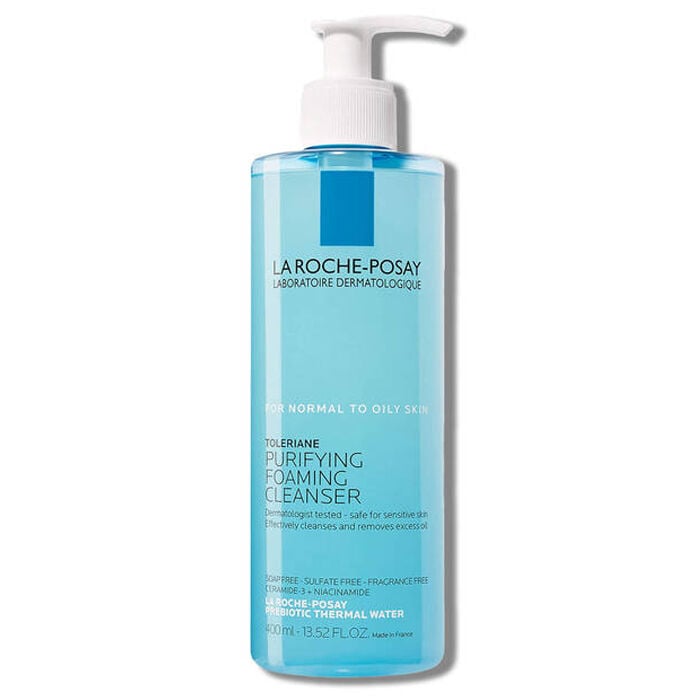
Serums: Three dermatologist-recommended serums are La Roche-Posay Glycolic B5 Serum Dark Spot Corrector, which contains ingredients like kojic acid and Vitamin B5 to help correct dark spots; Sunday Riley’s CEO Glow, which contains turmeric and Vitamin C. to lighten and brighten; and SkinCeuticals C E Ferulic. Although this particular serum is strong, building up a few usages over time is recommended.
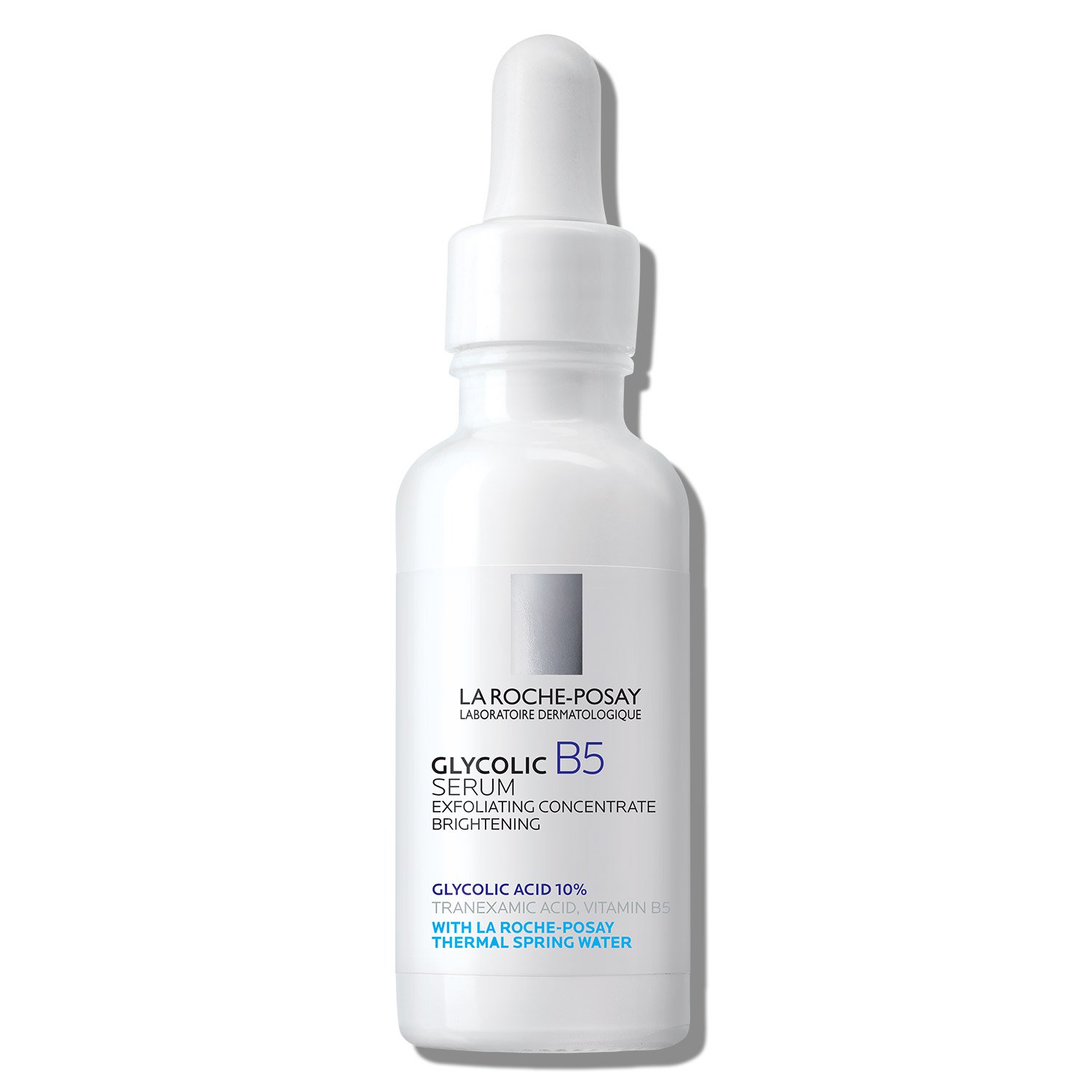

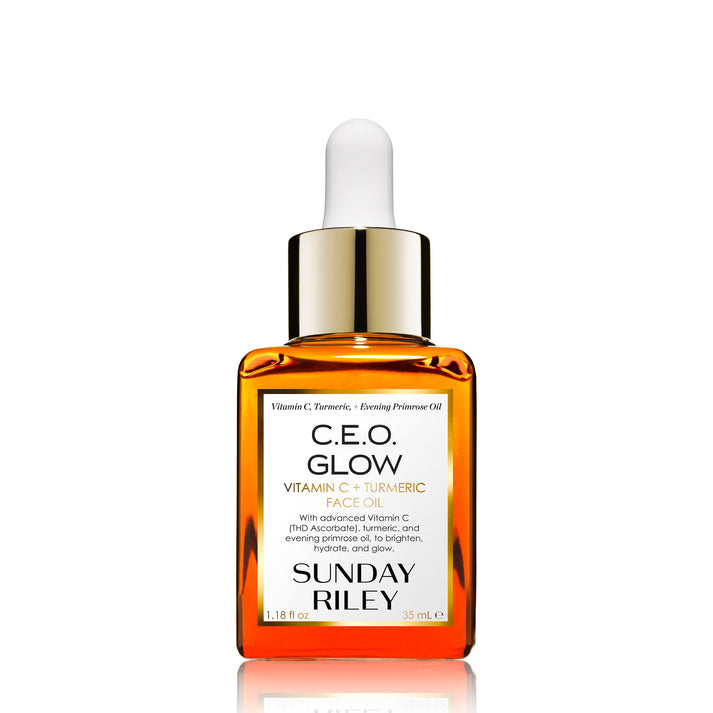
Creams: Many of my friends recommend Osea Collagen Dream Night C for a collagen night cream, of which I’m also a fan. I also like Osea Advanced Protection Cream, which contains plant-based bioretinol, Undaria seaweed, and biomimetic lipids designed to offer deep hydration without irritation, at least on my sensitive skin. “Seaweed provides so many skincare benefits because it is a superfood that is rich in vitamins, minerals, amino acids, antioxidants, and essential fatty acids,” says Jenefer Palmer, OSEA founder “ Different species of seaweed can provide a myriad of benefits, including anti-aging and moisturization. If I were to pick just one ingredient, it would be seaweed!”


Moisturizers: When you purchase moisturizers, look for anti-aging ingredients such as vitamin C and ceramides. These ingredients will help keep your skin hydrated and protect and eliminate free radicals that cause skin damage. Some moisturizers also contain sun protection, but if you need sunscreen for outdoor activities, you need to apply it on top of any other products. It should be the last skincare product you put on your face or body.
Sun protection: According to the AAD, don’t use anything less than an SPF product, and remember to reapply your chosen product a couple of hours after the first application, especially if you are sweating or going in and out of the water. My favorite sunscreen is Supergoop! Mineral Sunscreen with SPF 40.
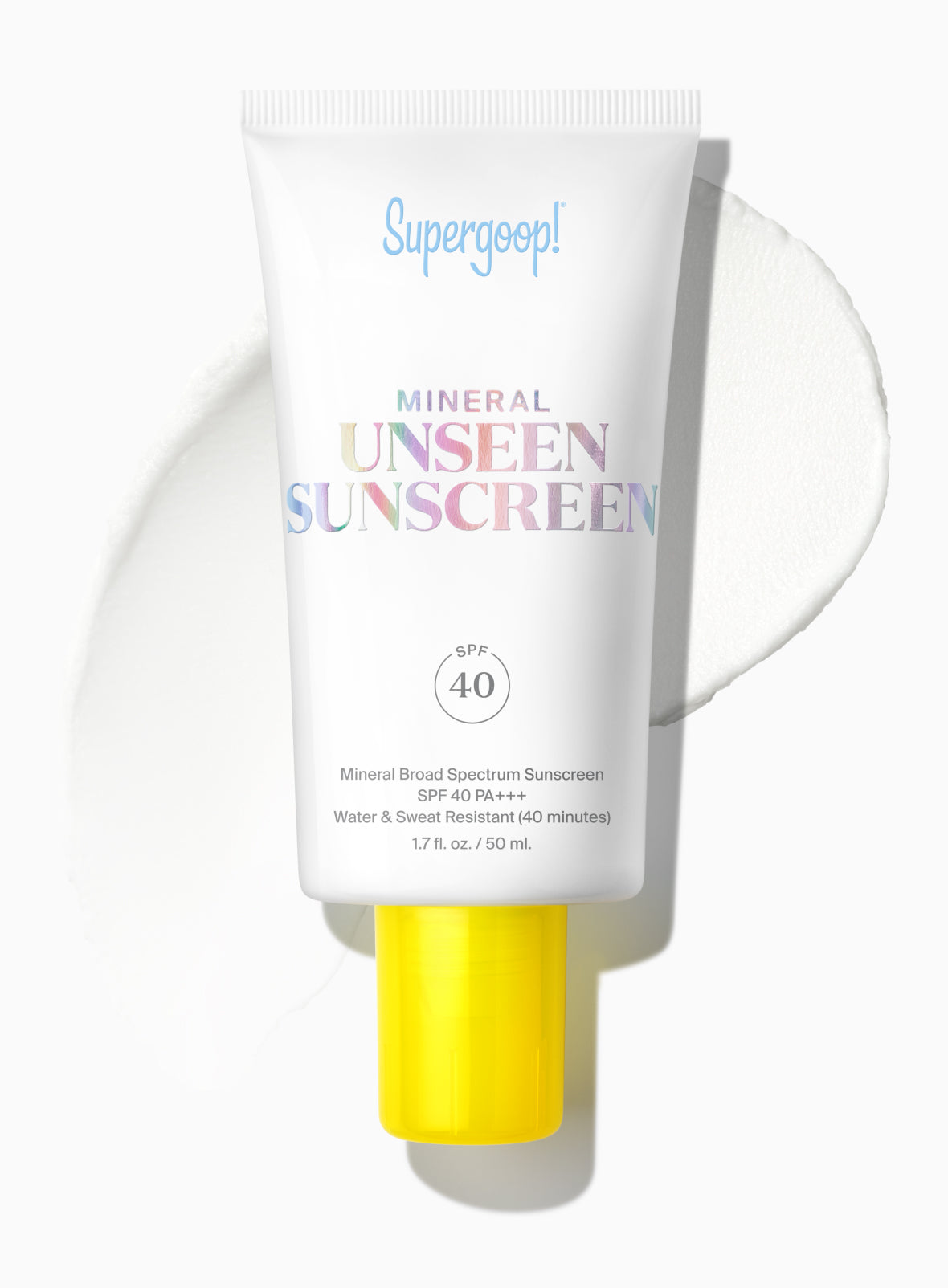
Dr. Engleman recommends these brands: Blue Lizard Sensitive Mineral Sunscreen with Zinc Oxide, Elta MD UV Clear Face Sunscreen, and Kiehl's Better Screen™ UV Serum SPF 50+ Facial Sunscreen with Collagen Peptide.



“Routines may vary depending on individual skin types and preferences. For me, this is my daily regimen: I start with cleansing, followed by applying face oil, then a facial spray, another layer of face oil, another spray, and finish off with moisturizer,” shares Palmer. “I know most people believe you should end with a face oil, but this routine works for me!” P “I have been loving our Essential Hydrating Oil. This is the very first product I formulated,” Palmer shares. “Pink microalgae is included alongside the 14 antioxidant-rich oils to visibly enhance skin elasticity and firmness.”
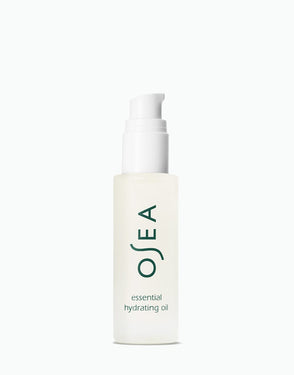
Most dermatologists, including those at The American Academy of Dermatology Association (AAD), agree that your first step in applying anti-aging products should begin with a cleansing and end with putting sunscreen on your face.In between, they recommend a facial oil or serum with antioxidants, applying eye cream to diminish fine lines, depuff bags, and help eliminate dark circles, and then a moisturizer, preferably with an SPF of at least 30 Consider lifestyle factors that may negatively impact the health of your skin.
“I always suggest a daily routine of polishing (exfoliating), cleansing, and nourishing (moisturizing) [to my patients],” says California-based dermatologist Dr. Harold Lancer “From there, I will suggest additional products to integrate into their routine, depending on their main skincare concerns. I also speak to my patients about smoking, diet, alcohol intake, and sun protection to keep their skin looking younger, longer,” shares Dr. Lancer, who has developed his own line of products.
Ingredients like retinol or peptides help regenerate cells. You should always remove makeup at night before you go to sleep. Of course, you should always be careful about overusing a product. You can space out some treatments, like retinol or a collagen mask, rather than using products, beyond a cleanser, serum, and nighttime moisturizer, every night, especially if you have sensitive skin.
“You have to be careful about the frequency and application of certain anti-aging products. For example, retinol can irritate the skin and cause dryness, redness, and flakiness,” suggests Dr. Engelman. “Ensure you are starting low and slow with concentration and application and building up to nightly usage over time.”
She recommends starting by applying a pea-sized amount of retinol with your moisturizer only once or twice a week to allow your skin to become accustomed to the new active ingredient and then slowly increase the frequency of use, eventually to daily application.
Like any skincare product, your skin type—dry, oily, or a combination of both—should inform what products work best.
“Regardless of the type of skincare, products always work best if they are formulated for your skin type to avoid adverse reactions like breakouts, dryness, and irritation,” she says. “For example, oily skin should avoid pore-clogging ingredients, while sensitive skin will want to look for gentle and soothing ingredients in formulations,” says Dr. Engelman.
If you could do one thing for your face to help ward off aging and protect your skin, it should be to use a quality high-SPF lotion or cream that blocks the sun’s UVA and UVB rays. The AAD recommends a water-resistant product with 30 SPF at a minimum and suggests re-application every two hours. Dermatologists suggest adding sunscreen to your daily skin-care routine to help combat the development of dark spots and protect against skin cancer. Even if it’s cloudy, you should wear an SPF lotion and avoid the heat of the mid-day sun when the rays are most intense. The sun ages the skin, so quality products with SPF should be used on your face and your body to keep damage at bay.
Dr. Engelman suggests the following timeline for products, in addition to sunscreen, which you should use any time you’re outside.
“For your 20s, you can begin investing in antioxidant-packed skincare products such as vitamin C to fight free radical damage. For your 30s, I recommend investing in an eye cream as this is the most delicate part of your skin and typically shows signs of aging first. I also recommend using ceramide-rich products to protect the skin barrier as we start to lose the production of ceramides in our skin in our 30s. You can also use vitamin A derivatives to improve collagen production and address acne scarring, hyperpigmentation, and fine lines and wrinkles,” she says.
For your 40s and 50s and beyond, she recommends “continuing sunscreen daily, retinol, and antioxidants. You can also ask your doctor if you are interested in any in-office treatments such as injectables, non-invasive anti-aging treatments like EMFACE, or lasers such as Fraxel.”
Anti-aging products can’t work alone, say dermatologists. Your diet will also impact the health of your skin. Eating foods rich in antioxidants, like blueberries and cherries, dark leafy greens like kale, and legumes, including red and kidney beans and apples, are critical to good health at any age.
Stress management, sleep, and exercise, even daily walks, will help keep your skin and the rest of you healthy as you age. Get enough hydration through water, herbal teas, and fruits and vegetables, because a hydrated body will help your skin stay healthy. When your skin doesn’t get enough hydration, it will often become dry and scaly, plus its dehydrated skin loses elasticity. Smoking and alcohol consumption will prematurely age your skin, as well.
The best ways to keep your skin healthy and at its best are to select anti-aging products designed for your skin type. Start slowly when using retinol, which may take time for your skin to get used to. Take a tailored approach to how you care for your skin with a regular day and night regimen that includes ingredients like vitamins C and B., collagen, peptides, and ceramides.
If you have sensitive skin, look for alternatives to retinol, and always try a new product in small amounts before you add it to your daily routine. Always use a moisturizer with SPF or an additional product with SPF to protect your skin from the sun, even when it’s cloudy or cold.
The information presented here is created by TIME Stamped and overseen by TIME editorial staff. To learn more, see our About Us page.

